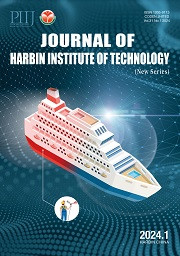|
| Abstract: |
| As urbanization continues to accelerate, the challenges associated with managing transportation in metropolitan areas become increasingly complex. The surge in population density contributes to traffic congestion, impacting travel experiences and posing safety risks. Smart urban transportation management emerges as a strategic solution, conceptualized here as a multidimensional big data problem. The success of this strategy hinges on the effective collection of information from diverse, extensive, and heterogeneous data sources, necessitating the implementation of full-stack Information and Communication Technology (ICT) solutions. The main idea of the work is to investigate the current technologies of ITS and enhance the safety of urban transportation systems. Machine learning models, trained on historical data, can predict traffic congestion, allowing for the implementation of preventive measures. Deep learning architectures, with their ability to handle complex data representations, further refine traffic predictions, contributing to more accurate and dynamic transportation management. The background of this research underscores the challenges posed by traffic congestion in metropolitan areas and emphasizes the need for advanced technological solutions. By integrating GPS and GIS technologies with machine learning algorithms, this work aims to pay attention to the development of intelligent transportation systems that not only address current challenges but also pave the way for future advancements in urban transportation management. |
| Key words: machine learning, deep learning, smart transportation |
| DOI:10.11916/j.issn.1005-9113.2024012 |
| Clc Number:U491,TP18 |
| Fund: |
|
| Descriptions in Chinese: |
| As urbanization continues to accelerate, the challenges associated with managing transportation in metropolitan areas become increasingly complex. The surge in population density contributes to traffic congestion, impacting travel experiences and posing safety risks. Smart urban transportation management emerges as a strategic solution, conceptualized here as a multidimensional big data problem. The success of this strategy hinges on the effective collection of information from diverse, extensive, and heterogeneous data sources, necessitating the implementation of full-stack Information and Communication Technology (ICT) solutions. The main idea of the work is to investigate the current technologies of ITS and enhance the safety of urban transportation systems. Machine learning models, trained on historical data, can predict traffic congestion, allowing for the implementation of preventive measures. Deep learning architectures, with their ability to handle complex data representations, further refine traffic predictions, contributing to more accurate and dynamic transportation management. The background of this research underscores the challenges posed by traffic congestion in metropolitan areas and emphasizes the need for advanced technological solutions. By integrating GPS and GIS technologies with machine learning algorithms, this work aims to pay attention to the development of intelligent transportation systems that not only address current challenges but also pave the way for future advancements in urban transportation management. |





